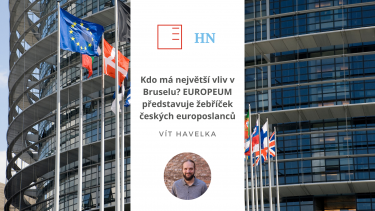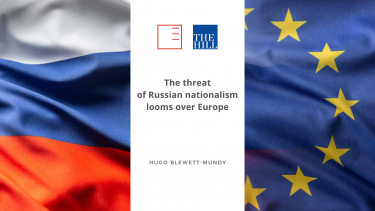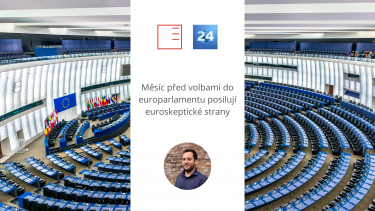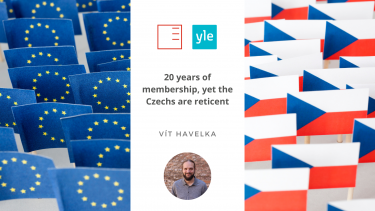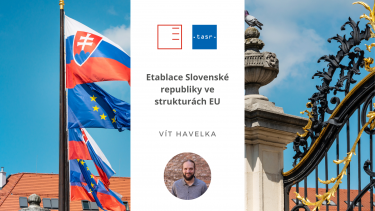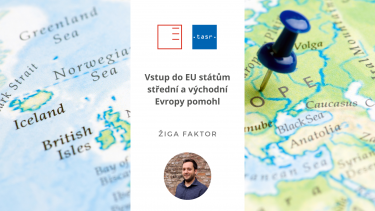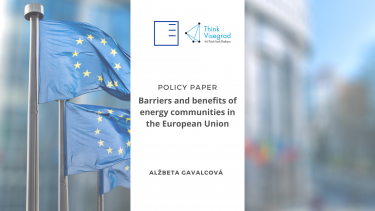Hospodářské noviny | Who has the biggest influence in Brussels? EUROPEUM presents the ranking of Czech MEPs
MEPs who are running for re-election in the upcoming European Parliament elections emphasize their influence in Brussels and Strasbourg, as well as their ability to shape public opinion in the Czech Republic. The actual extent was examined by EUROPEUM Institute, which compiled a ranking of the influence of Czech MEPs based on a survey of 100 Czech EU experts. Vít Havelka from EUROPEUM Institute discussed this ranking in Hospodářské noviny.
Zjistit více
The Hill | The threat of Russian nationalism looms over Europe
The threat of Russian nationalism poses a serious danger to Europe, as emphasized by the EU's High Representative for Foreign Affairs and Security Policy Josep Borrell in his speech in April. Russia is attempting to reassert its influence, particularly through its war against Ukraine, which undermines European security. What impact does the reemergence of Russian nationalism, supported by China, have on European security, and how should the West respond to this geopolitical reality? In his commentary for the American news website The Hill, Hugo Blewett-Mundy, an external collaborator and research fellow at EUROPEUM Institute, addresses this topic.
Zjistit víceČT24 | Euroskeptic parties strengthen a month before the European Parliament elections
The European elections are about a month away. Czechs will vote for 21 of the 720 MEPs. This will be the first election since Brexit, the Covid-19 pandemic or the start of the Russian invasion of Ukraine. Turnout is expected to be higher than in the last elections five years ago, with right-wing and Eurosceptic parties strengthening. Žiga Faktor, deputy director and head of EUROPEUM Institute's Brussels office, described the possible reasons for daily broadcast of Czech TV.
Zjistit více
Yle | 20 years of membership, yet the Czechs are reticent
For 20 years, the Czechs have benefited billions of euros from EU membership, yet they are more reticent about the Union than others. Where does this opposition come from? How do the Czechs see the EU and their role in it? Comments Vít Havelka, Senior Research Fellow at EUROPEUM Institute for the Finnish public radio and TV.
Zjistit více
TASR | Establishment of the Slovak Republic in the EU structures
Twenty years ago, the European Union underwent its biggest enlargement with the addition of ten Central and Eastern European countries. According to Vít Havelka, Senior Research Fellow at EUROPEUM Institute, this is enough time for all accession countries to learn how to navigate the EU institutions and its decision-making process.
Zjistit více
TASR | EU accession helped Central and Eastern European countries
In 2004, a total of ten new countries joined the European Union, the largest enlargement in terms of population and number of countries. EU accession has helped the countries of Central and Eastern Europe, especially in terms of economic growth and political stabilisation. Žiga Faktor, Deputy Director of EUROPEUM Institute and Head of the Brussels Office, commented on this topic.
Zjistit více
Policy Paper | Barriers and benefits of energy communities in the European Union
Energetické komunity jsou účinným prostředkem decentralizace a obnovy našich energetických systémů pomocí udržitelných řešení, protože jsou obvykle založeny na obnovitelné energii. Začaly se objevovat již v 70. letech 20. století, avšak k jejich výraznému rozvoji došlo až v posledních letech, a to i z hlediska jejich zavedení do legislativy EU. Zejména v zemích západní a severní Evropy se tato koncepce již těší velké oblibě. Naproti tomu v zemích střední a východní Evropy (dále jen SVE) se energetická společenství teprve začínají vytvářet. Tento politický brief (založený na literatuře a rozhovorech s různými zúčastněnými stranami ) zkoumá výhody, které mohou energetická společenství přinést, a především hlavní překážky, které jim stále stojí v cestě k většímu rozvoji v regionu střední a východní Evropy - a zejména v zemích Visegrádské skupiny (V4). Jak tyto iniciativy postupují, sdílení osvědčených postupů zajistí úspěch komunitní energetiky v energetickém přechodu. Píše Alžbeta Gavalcová.
Zjistit víceiDnes.cz | What exactly is in the migration pact
The European Union has approved a migration pact, and from 2026 individual states will either accept their share of refugees or pay to opt out of this obligation. However, since the Czech Republic has already accepted a large number of refugees since the outbreak of the war in Ukraine, it should temporarily be exempt from this obligation. However, as noted by Viktor Daněk, deputy director of the Institute for European Policy EUROPEUM, this is not an exemption explicitly granted to Czechia. Exemptions are determined based on the number of people granted asylum or similar protection in a given country.
Zjistit vícePolicy Paper | FROM STICK SHIFT TO SKILL SHIFT? Reskilling of automotive's employees in the eyes of the industry's stakeholders
V proškolování zaměstnanců automobilek není na co čekat, pokud nechceme, aby náš autoprůmysl zkostnatěl a zaniknul. Píše Rebeka Hengalová, výzkumná pracovnice Institutu EUROPEUM.
Zjistit více JPGBLOG | The Use of Article 7 as a Protection Tool for the Rule of Law and European Values
With Hungary taking over the EU presidency in July 2024, many are questioning the EU's ability to promote its values in its member states. Indeed, the EU is about to hand over its presidency to a state that has been criticised for its actions that threaten the rule of law and is subject to the procedure set out in Article 7 of the Treaty on European Union (TEU), writes Maxime Painot in his blog.
Zjistit víceStaroměstské náměstí 4/1
Praha 1 - Staré Město
110 00
tel.: +420 212 246 552
email: europeum@europeum.org
https://www.europeum.org
